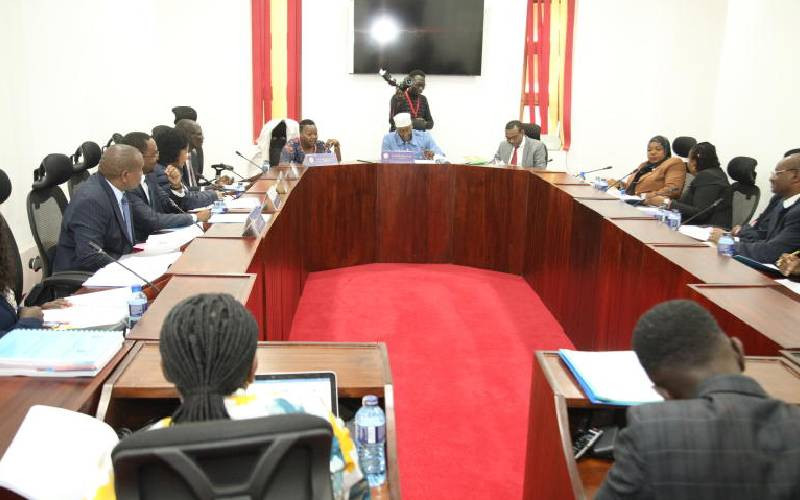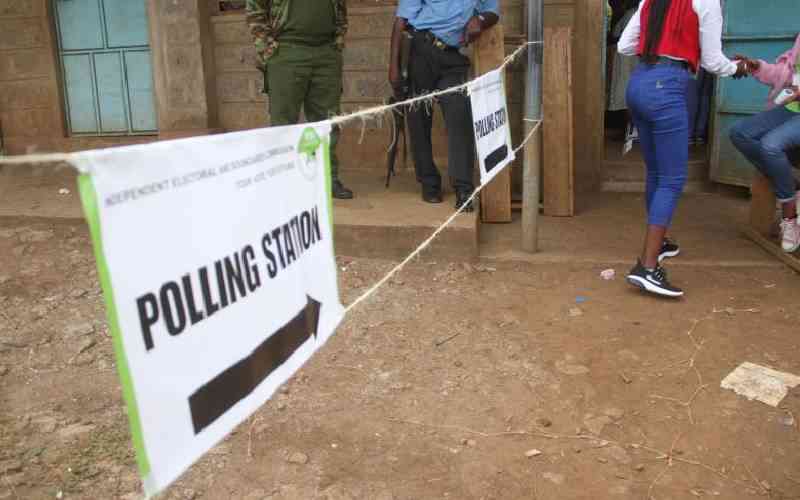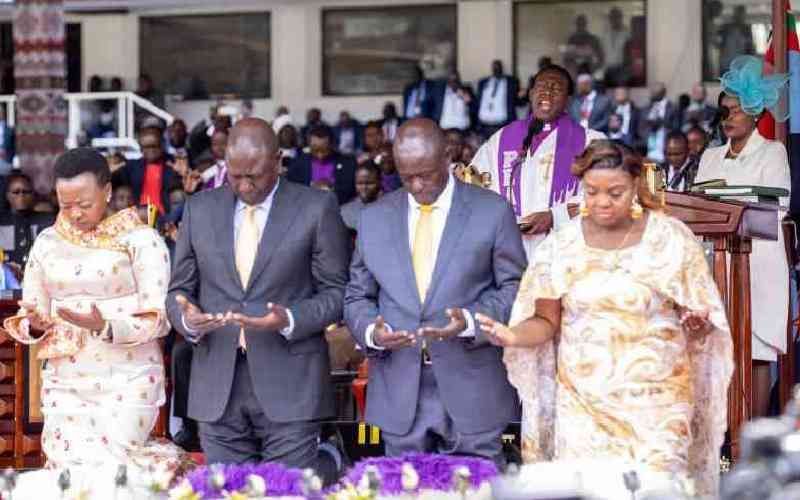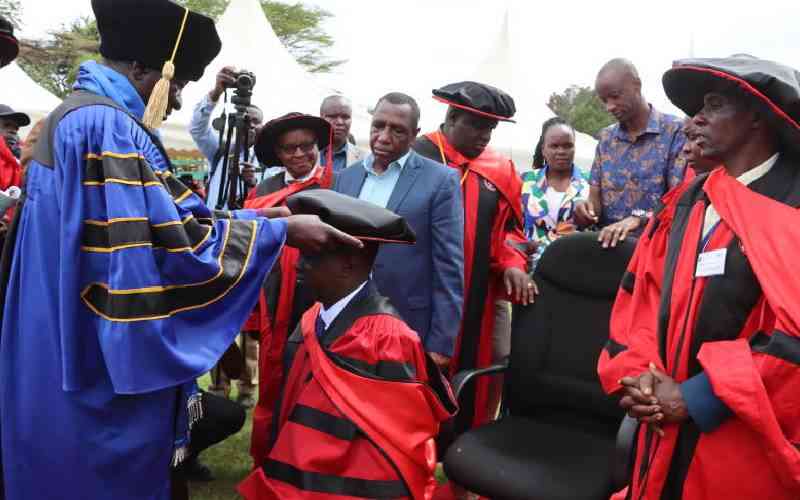Despite many challenges, Kenya has witnessed unprecedented transformation in women’s political participation since the promulgation of the new Constitution in 2010.
There has been an encouraging increase of the number of women in elective positions. The last General Election has produced the first female Governors (3) out of 47, 23 female Members of Parliament Elected out of 210, five female Senators out of 47 and 47 Woman Reps which is unprecedented.
Poor show
At county level, only 98 women were elected out of a possible 1,450. We acknowledge that this is not optimal but efforts towards improvement are on course.
While Kenya has made commendable progress, we still face challenges. Even with our robust legal framework promoting equality and non-discrimination, gender inequality still persists with power imbalance between men and women, boys and girls.
Firstly, although the country took a commendable step to enact the Marriage Act, 2014 and the Matrimonial Property Act, 2013, these Acts contain some challenging provisions which negate the good spirit of these laws.
The patriarchal nature of our society influenced some of these negative provisions contained in the Marriage and matrimonial property laws. These include aspects such as polygamy and failure to attain gender equality in the distribution of matrimonial property.
Secondly, the number of women in appointive positions remains below the constitutional threshold. Indeed as reported by the UNDP, the inequality index between men and women is 0.565 for Kenya, which is quite high.
This implies that women and girls are still discriminated against in areas of health, education, political representation, labour market to mention but a few.
Our greatest challenge has been our failed efforts to enact legislation for the realisation of the not more than two thirds gender principle in the constitution. While the government has made efforts to realize the principle, the culture of patriarchy and male dominance in Parliament has defeated efforts to enact the necessary legislation.
However, the Government is determined to put in place mechanisms to tackle negative patriarchal attitudes in Parliament in order to ensure enactment of legislation. However, policy and programmatic measures below are geared towards redressing these challenges. They represent measures the Government is putting in place to mainstream gender in National Development. These include: The inclusion of gender mainstreaming in the performance contracting process which has strengthened accountability on gender equality in public service.
The way forward
Women are progressively realising their potential in all sectors especially in agriculture, education and sexual reproductive health rights. Kenya has ensured access to alternative financial services for women through the Women Enterprise Fund.
The Government is undertaking capacity building on gender statistics for statistical officers, planning officers and gender officers both at National and County levels to enhance collection, collation and analysis of sex disaggregated data.
The Government takes the Sustainable Development Goals (SDGs) seriously. Institutionalization of the SDGs is being done through the adoption a Cabinet Memorandum that directs all Government Ministries, Departments and agencies to mainstream all the goals in all policy, planning and budgeting processes are important. This will ensure that no one is left behind in the realisation of the 2030 agenda on sustainable development.
Stay informed. Subscribe to our newsletter
Kenya has undertaken a baseline survey on gender related sustainable development goals aimed at verifying progress, towards achieving the SDGs. The survey is intended to establish the extent to which the SDGs converge with Kenya’s own development objectives as set out in the Vision 2030.
The Government has partnered with UN agencies and launched a four- year joint programme which seeks to accelerate efforts to prevent Gender-Based Violence (GBV), strengthen protection of GBV survivors, ensure expeditious prosecution of GBV cases; establish and implement strong sustainable programmes that are well resourced; and implemented through partnership with non-state actors, development partners, county and national government through strong coordination mechanisms at national and county level.
The National Assembly approved sessional paper No. 1 of 2015 on the National Policy on Elimination of Child Labour on the 11th of October 2016. A National Strategy on ending child marriage is being developed. Kenya is fully committed to continued acceleration of gender equality, promotion and protection of the rights of women and girls at all levels to ensure gender issues are incorporated into the National Development Planning.
This is designed to ensure enhancement of equal opportunities in political, social, economic and cultural spheres for men and women, girls and boys. Kenya continues to initiate measures to eradicate all forms of discrimination against women. In this regard, the government has initiated several affirmative measures to redress any disadvantage suffered by women due to past discrimination.
We recognise the fact that successful implementation and operationalisation of the Constitution is necessary for the achievement of gender equity and equality.
Mrs Kariuki is the Cabinet Secretary of Public Service, Youth and Gender Affairs
 The Standard Group Plc is a
multi-media organization with investments in media platforms spanning newspaper
print operations, television, radio broadcasting, digital and online services. The
Standard Group is recognized as a leading multi-media house in Kenya with a key
influence in matters of national and international interest.
The Standard Group Plc is a
multi-media organization with investments in media platforms spanning newspaper
print operations, television, radio broadcasting, digital and online services. The
Standard Group is recognized as a leading multi-media house in Kenya with a key
influence in matters of national and international interest.
 The Standard Group Plc is a
multi-media organization with investments in media platforms spanning newspaper
print operations, television, radio broadcasting, digital and online services. The
Standard Group is recognized as a leading multi-media house in Kenya with a key
influence in matters of national and international interest.
The Standard Group Plc is a
multi-media organization with investments in media platforms spanning newspaper
print operations, television, radio broadcasting, digital and online services. The
Standard Group is recognized as a leading multi-media house in Kenya with a key
influence in matters of national and international interest.








